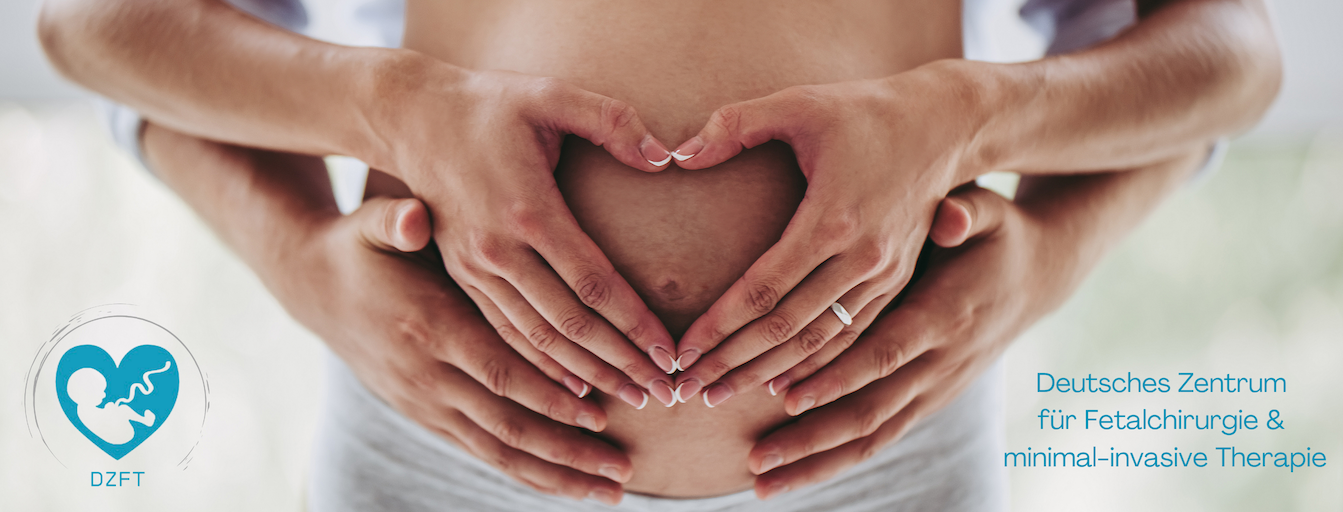Tetralogy of Fallot, pulmonary atresia with VSD, hypoplastic pulmonary arteries
Ultrasound examinations can now detect malformations of the heart in children with a high degree of reliability. These include tetralogy of Fallot, pulmonary atresia with ventricular septal defect, and transposition of the great vessels in combination with severe underdevelopment of the pulmonary vessels or the ductus arteriosus. The ductus arteriosus connects the aorta and the pulmonary artery in the prenatal blood circulation.
Depending on the severity of the underdevelopment of the pulmonary arteries or the ductus arteriosus, the transition from prenatal to postnatal circulation can be problematic in these heart defects. Similar difficulties can arise in the heart surgery required in such cases after birth, which is then significantly more difficult to perform.
If your unborn child has been diagnosed with one of these conditions, even in cases of extremely underdeveloped pulmonary vessels (as with ductus-dependent heart defects themselves), significant growth of the affected heart structures can still be achieved in the last weeks of pregnancy using a non-invasive treatment method called maternal-fetal hyperoxygenation. It was developed at the DZFT to facilitate the transition from prenatal to postnatal circulation and improve postnatal surgical conditions. We offer the treatment method of maternal-fetal hyperoxygenation at the DZFT from the 35th week of pregnancy.
If you would like to find out whether our therapy method could have a positive effect on your unborn child’s heart defect, please contact us Monday to Friday between 10 a.m. and 5 p.m. on 0175/597-1213 or send us an email. If you only reach our answering machine, please leave your name and a phone number where we can call you back.
Please note: The content of our website is for informational purposes only and is not intended to replace personal consultations with us or other recognized medical specialists in this field. For all individual questions and decisions regarding your health and that of your child, we strongly recommend that you and your family members contact us, your doctor, and/or other experts in person.
